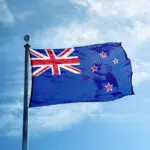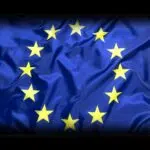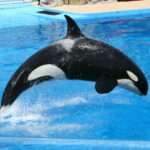The European Day of Languages is celebrated annually every September 26. The first goal of observing this day is to inform the public about the benefits of learning a new language and diversifying the languages learned to increase intercultural understanding and Plurilingualism. Secondly, the day aims to promote the rich and diverse linguistic culture of Europe, which should be fostered and preserved. Finally, the European Day of Languages hopes to encourage lifelong learning of languages in and out of school. This day is celebrated by 47 member states.
History of European Languages Day
The year 2001 was ‘The European Year of Languages.’ It was organized by the Council of Europe and the European Union. It was very successful and involved millions of people across 45 participating countries. It created activities that focused on and celebrated European linguistic diversity and promoted language learning.
Due to the success of The European Year of Languages, the Council of Europe declared that the European Day of Languages should be celebrated every September 26. The tenth anniversary of the European Day of Languages was marked on September 26, 2011. It was celebrated at the Council of Europe and throughout its 47 member states. This day is for the general public and policymakers. The Council of Europe is hoping that it spurs policymakers to take, as an example, specific measures or lead more discussions on language policy issues. Among the public, they aim to raise awareness of the overall objectives of the day which include the importance of: “Lifelong language learning, starting at any age, in educational establishments, or at work.”
It has been estimated that over this century at least half of the world’s languages will die out. This could happen within two generations — all traces of a language could disappear if children are no longer raised in it. There are many reasons for giving up a language including the destruction of a community or its habitat, hostility by political groups, and economic and cultural domination by more powerful languages.
It is the 21st century, and all European citizens live in a multilingual environment. They come across many different languages daily so there is a need to increase knowledge, curiosity, interest, understanding, and tolerance of different languages in Europe.
European Languages Day timeline
The idea of creating a campaign to educate the public on the importance of learning more languages is born at the Conference on Language Learning for a new Europe.
Two policies emerge — the European Charter for Regional or Minority Languages in 25 member states and the Framework Convention for the Protection of National Minorities.
The first European Day of Languages is observed on September 26, 2001.
The tenth anniversary of the European Day of Languages is celebrated on September 26, 2011.
European Languages Day FAQs
What are the top European languages?
Five languages, Russian, French, Italian, German, and English, have more than 50 million native speakers in Europe.
What is the oldest language in Europe?
Euskera is the oldest living language in Europe whose origins remain unknown.
Which is the hardest language to learn?
Mandarin is widely considered the toughest language to speak.
European Languages Day Activities
Learn a new language
The perfect way to honor the diversity of European languages is to learn a new European language. You can do so by taking a class online or attending a language summer camp.
Celebrate the day on social media
Posting about the day on social media is a great way to spread awareness. You can use the hashtag #EuropeanDayofLanguages to talk about the topic.
Install and learn from a language learning app
Download the Secret Agent Languages Challenges App to make learning a new language a fun experience. You can take quizzes or carry out fun tasks and challenges.
5 Important Facts About Languages
Artists create their own languages
There have been more than 200 fake languages created for literature and film.
The most spoken language in Europe
The most commonly spoken language in Europe is Russian.
Thousands of endangered languages
According to UNESCO, an estimated 6,000 languages spoken in 43% of the world are endangered.
The three main language families
There are three main language families in Europe — Germanic, Slavic, and Romance languages.
The rich indigenous linguistic diversity
There are about 225 indigenous languages in Europe — roughly 3% of the world’s total.
Why We Love European Languages Day
It honors diversity
It is a day that celebrates European cultural differences and diversity. Observing such occasions helps in instilling feelings of mutual respect and admiration among different people.
It promotes learning and education
It is a day that makes people aware of Europe’s linguistic heritage. Learning a new language is a great way to expose oneself to a new culture.
Learning languages is beneficial
Learning a new language offers cognitive benefits to both the young and the old. It improves memory, problem-solving skills, and creativity.
European Languages Day dates
| Year | Date | Day |
|---|---|---|
| 2024 | September 26 | Thursday |
| 2025 | September 26 | Friday |
| 2026 | September 26 | Saturday |
| 2027 | September 26 | Sunday |
| 2028 | September 26 | Tuesday |























